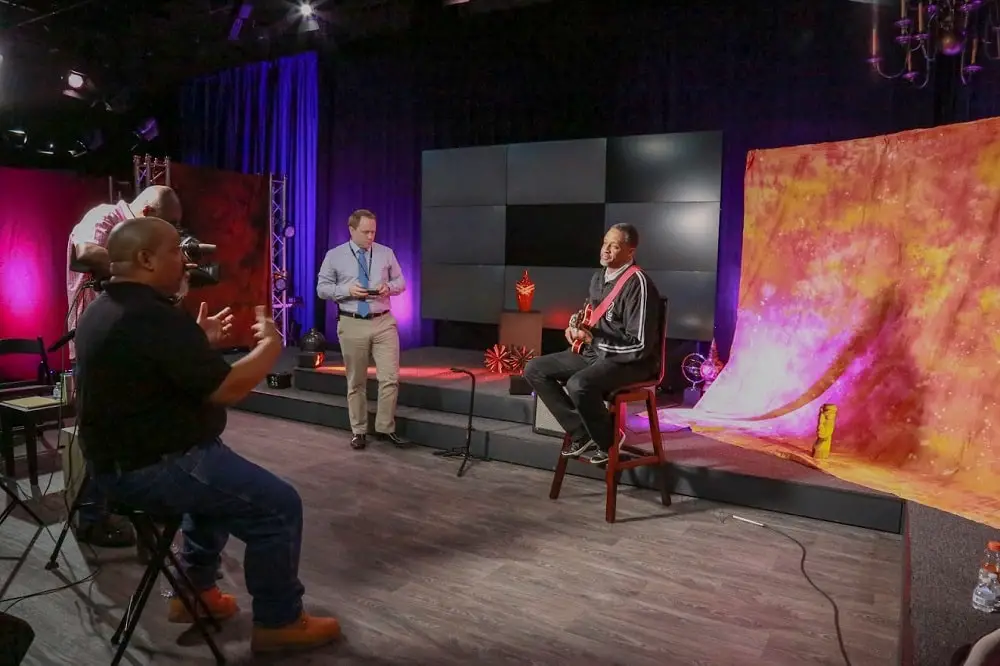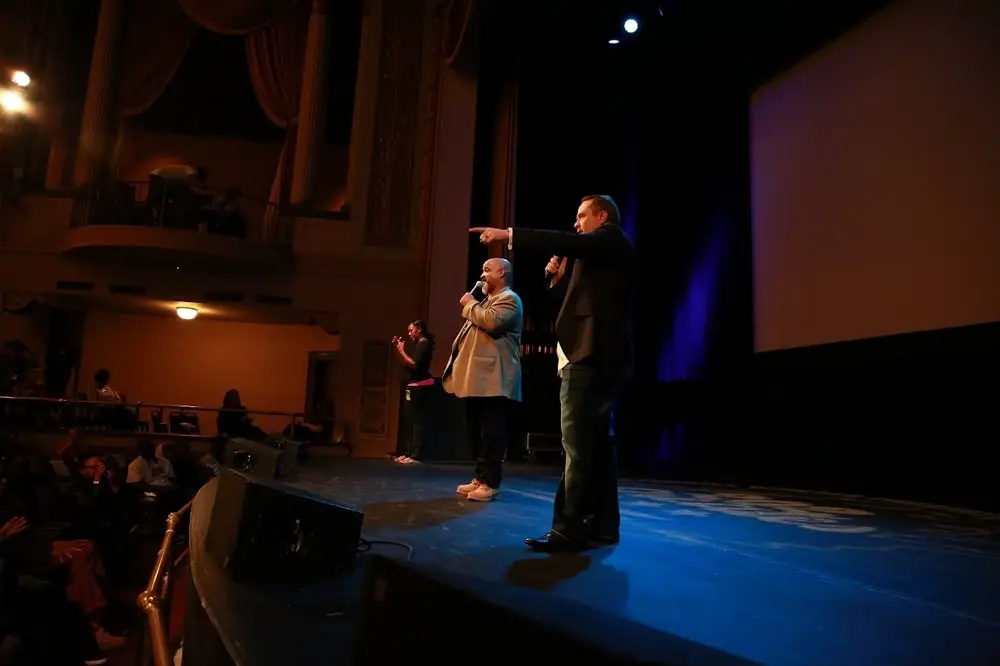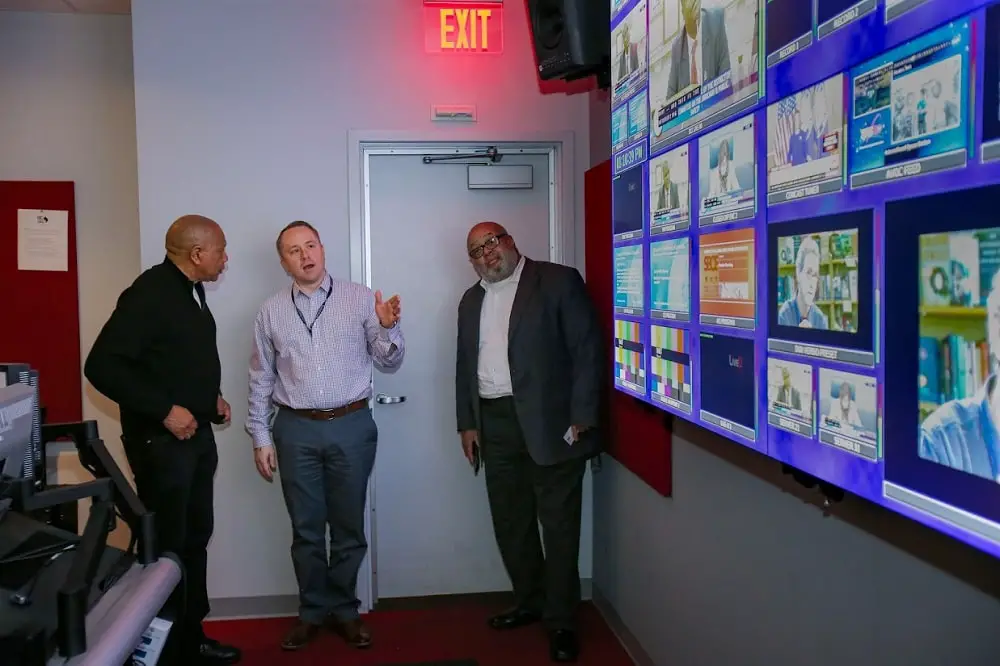Day in the life of
Multimedia Systems Technician – Matt Granato

I started as a multimedia systems technician after I finished college, so it was an experience early on in my career. Essentially my day-to-day tasks consisted of maintaining, deploying, upgrading, and operating audiovisual equipment and computers to support any of the various events that could be taking place on a college campus. That could be everything from a multimedia presentation of a film festival in an auditorium, a high-profile campus speaker with thousands of attendees, college commencement, or alumni weekend, parents weekend, or reunions weekend programming.
In carrying out these responsibilities it was essential to stay up-to-date on cutting-edge technology and cultivate creative ideas in how to incorporate that technology into all of the events I’ve described to enhance the experience for attendees.
Pros
Like any position, there are high and low points. Overall, I would say that working in entertainment and in this role in particular the pros definitely outweigh the cons. If you’re someone who enjoys meeting new people, meeting well-known or famous people, you definitely will regularly interact with a wide variety of high-profile individuals, celebrities, influencers, etc.
In addition to working with these sorts of people, you regularly work with people on their team in planning and executing the details of the show or event. This is great not only for networking but also for getting a first-hand account of how professionals operate and conduct business in the world of entertainment.
You also get access to experiences most people don’t have the opportunity to, sound checks, rehearsals, one-on-one interviews, show prep, etc.
Cons
The downside of all this excitement is that many times you will hurry to meet a load in and set up a schedule for a show only to be left with hours of downtime waiting for the next rehearsal, or start of show. Entertainment events mostly take place on nights or weekends, so you have to have a flexible schedule.
Lastly, there is usually very little time between events so once you have worked wrapping up one job, you are already diving right into the next one. So the overall pace tends to be quite fast with a lot of long periods of waiting for other departments to do their work or for talent to be ready.
Advice to students interested in this career path
The best way to gain experience and put yourself in a place to find opportunities is to take any mass communications or media production classes your school offers. Another area to explore is computer science. All of the topics areas these disciplines offer are relevant to the roles one would be interested in and are essential to building a solid foundation to further develop. Audio & video production, sound design, compositing, and graphic design are all elements that are part of the live events and programs people are attending and are integral to creating an event with impact. The programs used to design and execute shows have more capabilities and are more powerful than ever before and there is always a very competitive market for technicians with specific skillsets on a particular piece of high-end equipment.
In addition, I would also find the campus events committee. Every school has a group that is responsible for reaching out to national and regional performers to come to campus and entertain the college community. One can gain a vast amount of experience in how to interact with talent managers, negotiate booking acts, and make really helpful contact they can utilize once they graduate.
Audio and Video Equipment Technicians
set up, maintain, and dismantle audio and video equipment, such as microphones, sound speakers, connecting wires and cables, sound and mixing boards, video cameras, video monitors and servers, and related electronic equipment for live or recorded events, such as concerts, meetings, conventions, presentations, podcasts, news conferences, and sporting events.





.jpg)